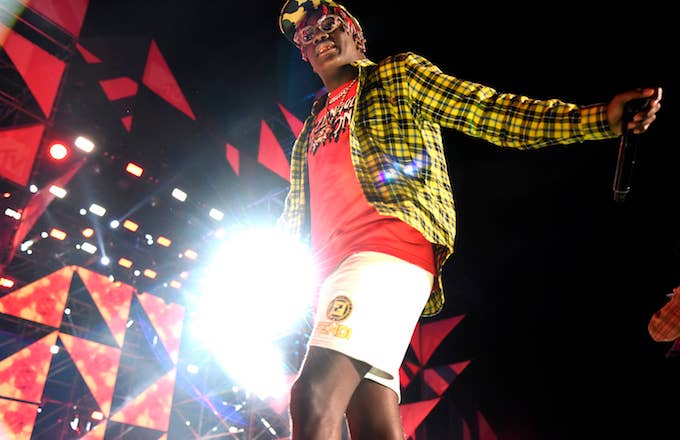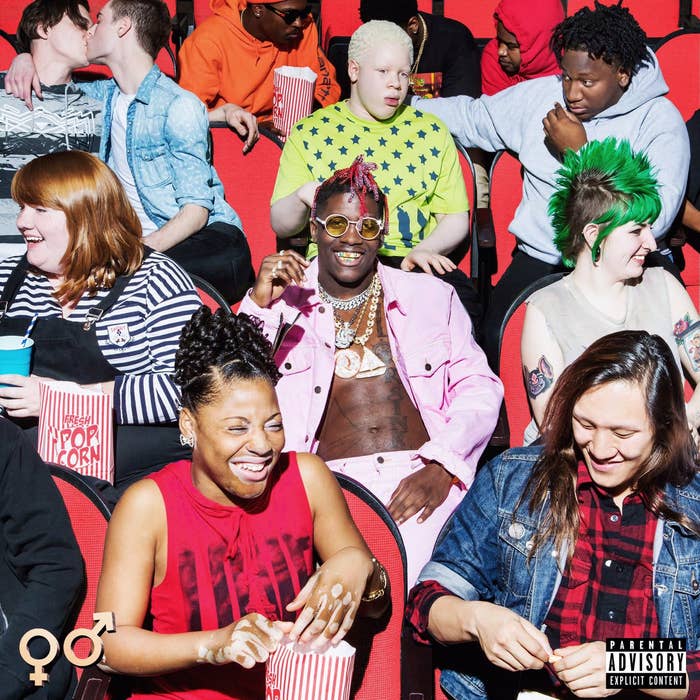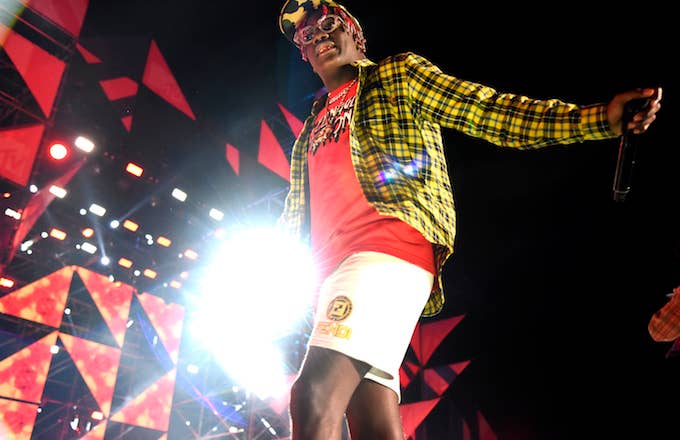
On a Monday morning, modern-day provocateur, Complex contributor, and eternally disgruntled (retired) rapper Joe Budden yelled the quote that would launch us back into one of the most tired and regurgitated debates of all time: “[Lil Yachty is] someone who I think is ruining the culture. Someone who should not be accepted in this culture.”
The statement reeks of dusty elitism and industrial glue on a new pair of Timbs. This argument isn’t new, it transcends age, and has been plaguing hip-hop for 30-plus years. Even though it often gets mired in old vs. young, this is actually a debate about rap conservatism, and it’s been appearing with increasing frequency as the world burns and the internet provides only occasional reprieve.
If hip-hop is Star Wars, rap conservatives are its Jedi. Giving a group of repressed rat-tailed space monks phallic laser swords is not a good idea. Indoctrinating these same space monks into a misguided religion cowed by space bureaucracy is also a horrible idea. That is why Darth Vader was the chosen one and killing his smug friends wasn’t all that bad.
Anarchy is fun, order and nostalgic fealty are not. Sometimes you need a messianic figure to embrace the dark to lead you to the light. The destruction of the established order and birth of something new is the constant cycle that keeps rap commercially and critically afloat while other genres die out.

Great rappers destroy rap. The greatest rebuild the genre and, by extension, the culture into their own image. Hated rappers make the best rappers. It’s not a coincidence that 75% of Atlanta is indebted to Gucci Mane. Or that you can play “guess their favorite Kanye album” with every new hip-hop artist of the past decade. Reconfiguring rap as a path to greatness is why all SoundCloud rappers should sacrifice their firstborn to Keith Cozart before uploading their first mixtape. We hate who and what we don’t understand, and what we seldom understand is the future.
Kendrick has the No. 1 album and song in America, because he doubled down on the denseness of what it means to be Kendrick Lamar. His alien vocals, melodic gifts, and the spinning of endless webs of meaning through stories about lives saved through KFC olive branches is wholly indebted to his own idiosyncrasies and predilections. He’s not making music that sounds like an Illmatic reenactment. (Nas, by the way, declared hip-hop dead over a decade ago on a song with will.i.am).
Great rappers destroy rap.
Drake re-wrote what it means to be a rapper and R&B artist by erasing the lines around those genres with the help of Auto-Tune, Noah “40” Shebib, drunken voicemails, and challenging the traditional model of hip-hop masculinity. Young Thug took the spiritual baton Lil Wayne ran with for years and has made rapping conventionally sound like a handicap. Thug rhymes, sings, ad-libs, shrieks, yelps, and places his foot on the pulsing throat of hip-hop culture with every verse. You want to understand Thug, you think you understand Thug, but we’ll never truly grasp the breadth of his talent.
Arguments against these rappers, and the new crop of Lil Yachtys, are the descendants of arguments we’ve been having for decades. The kind of people that dismiss the new out of hand are the same incurious listeners who disqualified André 3000 for his outré fashion sense and unconventional delivery, and thus missed out on one of the greatest rap acts of all time.
All of these rappers are legitimate greats because they won’t keep to the confines of outdated boundaries, as decreed by self-appointed rap parents. They won’t color inside the lines, use indoor voices, or remove their shoes to keep from tracking mud inside the house. They’re too busy setting the house on fire.
Whether Lil Yachty represents the future remains to be seen. Regardless, he is the latest rapper in a long line that infuriates ultra-conservative rap heads. For those with a “Make Hip-Hop Great Again” mindset for those who still use the term “mumble rap,” Lil Yachty presents an easy target. That this particular argument began over the merits of the artwork for Teenage Emotions makes the latest outbreak of misguided angst even more asinine. Yachty, as the self-proclaimed “King of the Teens,” brings an innocent, almost child-like perspective to a genre in real need of it.
What was Joe’s response to album artwork that featured racial diversity, unabashed joy, and signs of love and acceptance? “When you’re not hip-hop and you’re trying to just troll or exploit, you get things like this. You get things like this album cover, which is to draw attention to music that’s not drawing attention...He’s not gay, but does he look a lil fruity? I think that rappers are perpetuating a style to sell records.”
Phrases like 'ruining the culture' aren’t about culture. They are about decay and fear.
One of the most important things for any minority group is seeing ourselves represented in the art we consume. Reducing Yachty’s artistic statement to a mere cash grab is insulting on many levels.
A Lil Yachty line like “It’s been a long time coming this far, I remember back in school when they used to make fun of my scars,” from “Intro (First Day of Summer),” exemplifies the type of attitude that makes the Teenage Emotions album cover possible. Like most teenagers, Yachty has physical and metaphorical scars. The scars make you feel alienated to the point of depression. In the crevices of Yachty’s overwhelming positivity you can find evidence of rejection and dismissal. Those feelings that, at times, could make anyone want to rip off their own skin, rather than deal with the burden of being shamed for your differences. Yachty isn’t selling inclusiveness, he just happens to be inclusive and also sells.
Phrases like “ruining the culture” aren’t about culture. They are about decay and fear. Humans are walking flesh bags in fear of their own obsolescence. Rappers are living longer. Legends are becoming fathers. Hip-hop is 40 and on the cusp of a mid-life crisis.
In the wise words of DeAndre Cortez Way, “The reality of it is that the game has changed. It's new niggas out. It's young niggas eating. And nobody want to hear that old shit no more. There’s people who still want to hear it, but they just ain’t dead yet.”
We are almost a decade removed from this legendary moment in hip-hop history, when Soulja Boy mercilessly buried Ice-T for claiming Soulja “single-handedly killed hip-hop.” Soulja wasn’t wrong; Ice-T was. No one can kill hip-hop. It’s too strong, too resilient, too mutable, too adaptive, too omnivorous. And insisting that it can be killed depends on a weird kind of doubt about the genre’s vitality that, after 40 years of being the most dynamic music in the world, should be put to rest.
Hip-hop has always been ruled by the teens and their leaders. You can either respect that, embrace the unfiltered, all-consuming chaos of youth, or die on your hill in solitude, unwilling to change with the times.

